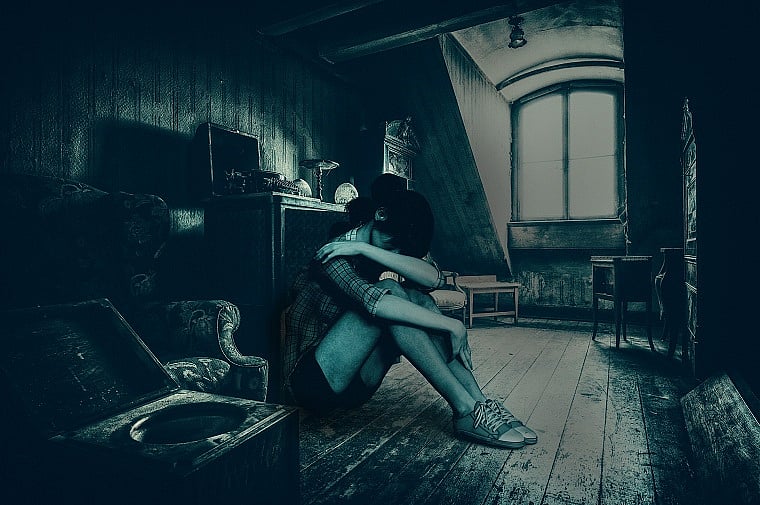The COVID-19 pandemic has impacted the mental health of nearly every person. The direct impact has been after contracting COVID-19, while the indirect impact was due to family members and friends being affected. Then, the social aspects such as people either having lost their jobs or their earnings reduced, added to the mental health burden. A greater degree of impact has been on the women as they had higher responsibilities like caring for children, the elderly and the sick. For school-age children, who were for the longest period confined to their homes, were not able to meet or play with friends, in addition to the irreversible loss of learning.
Even before the pandemic, the National Mental Health Survey (NMHS) 2015-16 of India had estimated that, excluding disorders related to tobacco consumption, mental morbidity of individuals over the age of 18 years was 10.6%. The lifetime prevalence (proportion of individuals who have had a disorder) of psychiatric disorders identified in the NMHS was 13.7% with a mental health treatment gap of 70% to 92%. This burden has been compounded by the pandemic.

However, when it comes to mental health services, there is both shortage of providers and inequitable availability. For nearly 1.38 billion population of India, there are only 9,000 (or around 0.70 psychiatrists per 100,000 population) psychiatrists to tackle huge mental health morbidity. The desirable number is three or more psychiatrists per 100,000 population. There are shortages of allied mental health workforce such as psychologists, psychiatrists, counsellors and nurses, which compound the challenge in increasing service provision.
The individual mental health needs are going to be important as society intends to return to normalcy. It is now clear that we must settle into this new rhythm of working from remote places and that is going to test our adaptive abilities. Disrupted work schedules and a lack of compulsion to physically report to the workplace may end up disrupting our biological clocks too. While people need mental health services, as a preventive approach at a personal level, we have to take care of mental health needs by following sleep hygiene measures such as limiting screen time, sticking to similar sleeping and waking up times. All of these would require sustained mental health support.
One would also have to be aware of emotional red-flag signs. Persistent and pervasive sadness lasting through the day, loss of interest in previously pleasurable activities, persistent low energy levels, trouble concentrating, sleeping too little or too much, waking up a few hours before usual wake-up time, eating too little or too much... may herald the onset of clinical depression. Should such mental health symptoms last more than two weeks, it is advisable to get in touch with a mental health professional.
Each person has had to deal with a humongous amount of stress. Many of us may not even be verbalizing these distressing feelings. Pent-up emotions serve as the perfect recipe to cook up a likely storm of depression and anxiety. Families may also be feeling left out and isolated during these times.
Being physically active, doing yoga, regularizing sleep schedules are important for coping with stress, but they have to be supported with other practices such as improving family interactions, being mindful, engaging in virtual connectedness, learning to recognize maladaptive emotions and managing oneself and reaching out for help. Mindfulness and meditation are also learnable life skills and help us cope healthily with stressful situations.

At a policy level, mental healthcare services are sparse and mostly restricted to major cities and urban settings. There is stigma associated with these services which detract people from seeking care. It is time state governments review the needs, increase allocation for mental health services at every level and integrate mental health into primary healthcare facilities to make these accessible and available for every citizen. And, budget allocation towards mental health has to increase significantly.
Global evidence suggests that investment on health gives nine-fold returns. There is consensus that at least 1% of the government budget on health should be allocated to mental health services, which is far lower for most Indian states. It is also time that the provision of the National Mental Health Policy (2014) of India is revisited and interventions are started for accelerated implementation. A majority of mental health needs are minor and do not require specialist attention. It is time that special initiatives are started to train MBBS doctors to treat common psychiatric disorders and effective referral for treatment-resistant cases, dual diagnoses, complex cases with co-morbidities to psychiatrists. India needs a more trained mental health workforce. However, a lot more can be achieved with the existing workforce as well.
The pandemic has added to the already existing mental health morbidity in India. There should be concerted and systematic efforts towards bettering mental health at the policy, family and individual levels. This should be taken as an opportunity for all of us.
(Alok V Kulkarni is Senior Consultant Psychiatrist at Manas Institute of Mental Health, Hubli and Chandrakant Lahariya is a physician-epidemiologist and public policy and health systems expert, based in New Delhi. Email: c.lahariya@gmail.com, alokvkulkarni@gmail.com )






